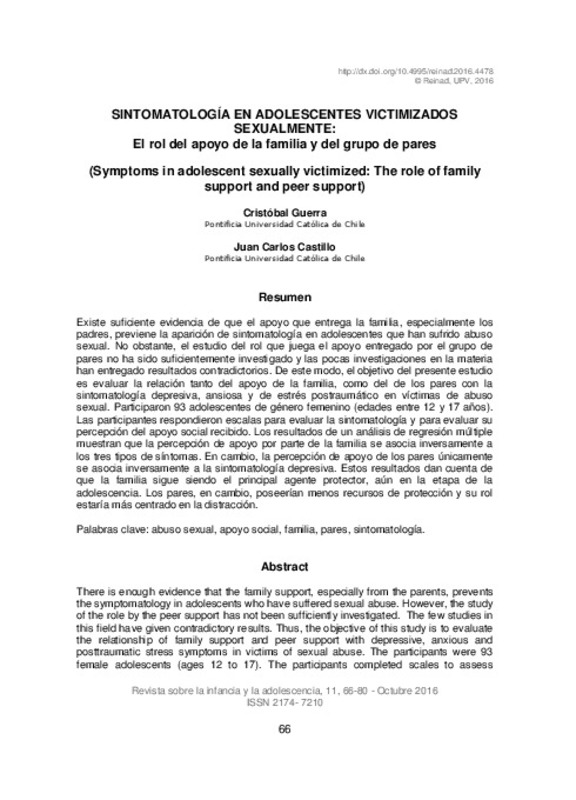JavaScript is disabled for your browser. Some features of this site may not work without it.
Buscar en RiuNet
Listar
Mi cuenta
Estadísticas
Ayuda RiuNet
Admin. UPV
Sintomatología en adolescentes victimizados sexualmente: El rol del apoyo de la familia y del grupo de pares
Mostrar el registro completo del ítem
Guerra, C.; Castillo, JC. (2016). Sintomatología en adolescentes victimizados sexualmente: El rol del apoyo de la familia y del grupo de pares. Revista sobre la infancia y la adolescencia. (11):66-80. https://doi.org/10.4995/reinad.2016.4478
Por favor, use este identificador para citar o enlazar este ítem: http://hdl.handle.net/10251/73287
Ficheros en el ítem
Metadatos del ítem
| Título: | Sintomatología en adolescentes victimizados sexualmente: El rol del apoyo de la familia y del grupo de pares | |
| Otro titulo: |
|
|
| Autor: | Guerra, Cristobal Castillo, Juan Carlos | |
| Fecha difusión: |
|
|
| Resumen: |
[EN] There is enough evidence that the family support, especially from the parents, prevents
the symptomatology in adolescents who have suffered sexual abuse. However, the study
of the role by the peer support has not ...[+]
[ES] Existe suficiente evidencia de que el apoyo que entrega la familia, especialmente los padres, previene la aparición de sintomatología en adolescentes que han sufrido abuso sexual. No obstante, el estudio del rol que ...[+]
|
|
| Palabras clave: |
|
|
| Derechos de uso: | Reconocimiento - No comercial - Sin obra derivada (by-nc-nd) | |
| Fuente: |
|
|
| DOI: |
|
|
| Editorial: |
|
|
| Versión del editor: | https://doi.org/10.4995/reinad.2016.4478 | |
| Tipo: |
|








